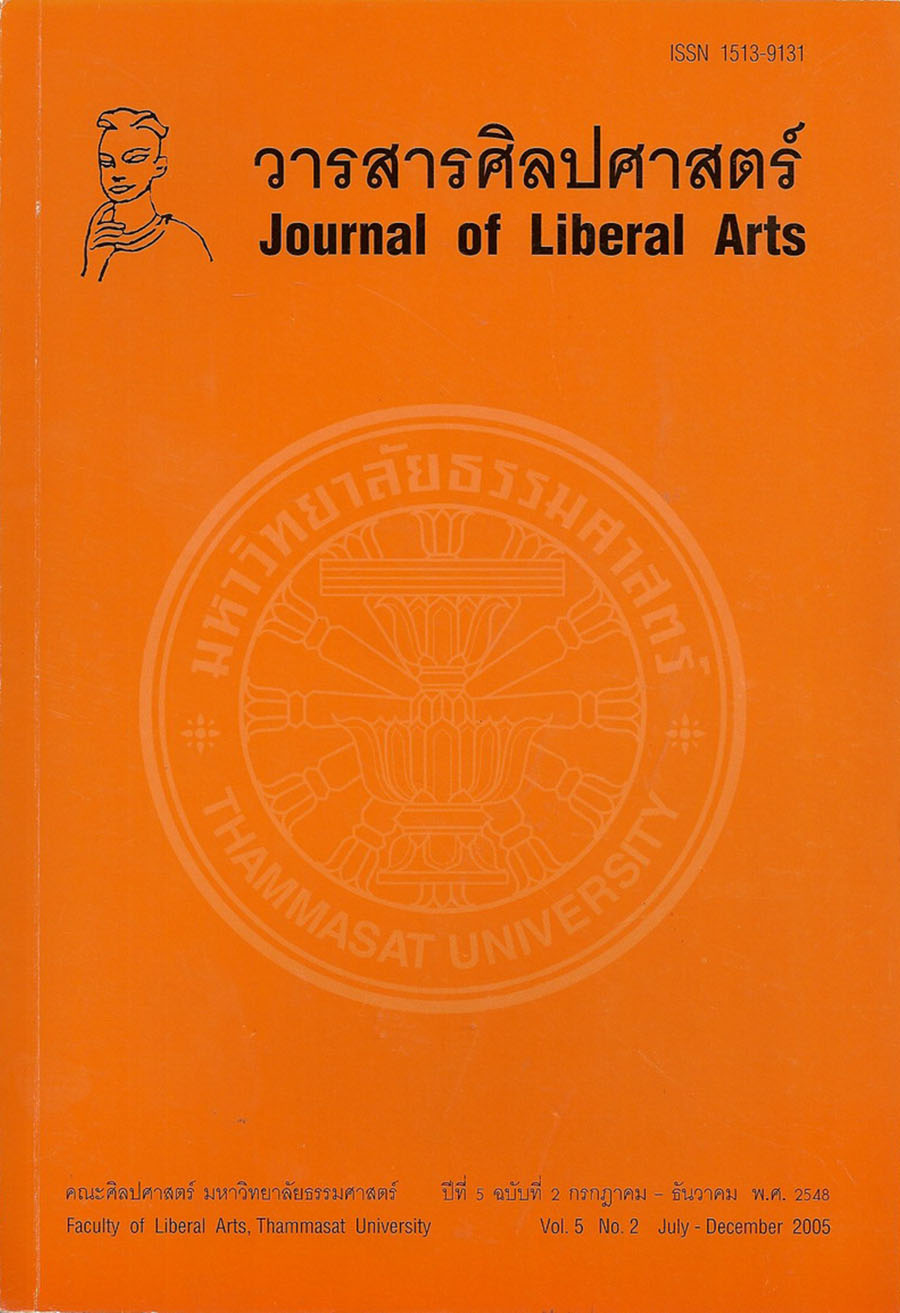ความเหลื่อมล้ำทางสังคมของหญิงและชายที่สะท้อนให้เห็นจากภาษาญี่ปุ่น
Main Article Content
บทคัดย่อ
สังคมญี่ปุ่นเป็นสังคมที่มีความเหลื่อมล้ำทางเพศค่อนข้างสูง ผู้หญิงญี่ปุ่นมีฐานะทางสังคมที่ต่ำกว่าผู้ชายค่อนข้างมาก บทความนี้ได้นำเสนอตัวอย่างการใช้ภาษาของคนญี่ปุ่น ที่สะท้อนให้เห็นฐานะที่ไม่เท่าเทียมกันของหญิงและชาย โดยพิจารณาในสองด้านด้วยกันคือ 1.ภาษาที่ผู้หญิงและผู้ชายญี่ปุ่นใช้ 2. คำที่ใช้กล่าวถึงผู้หญิงและผู้ชาย จากตัวอย่างต่าง ๆ ที่นำเสนอในบทความล้วนชี้ให้เห็นว่า ผู้หญิงญี่ปุ่นถูกคาดหวังจากสังคมให้พูดภาษาที่สุภาพ นุ่มนวล และเป็นมาตรฐาน ในขณะที่ผู้ชายมีทางเลือกในการใช้ภาษามากกว่า สามารถใช้คำที่ไม่สุภาพหรือไม่เป็นมาตรฐานได้ด้วย นอกจากนั้นคำที่กล่าวถึงทั้งสองเพศก็ยังสะท้อนให้เห็นถึงความไม่เท่าเทียม และเหลื่อมล้ำทางด้านเพศเป็นอย่างมาก
Evidence of sexual discriminations is still found in Japanese social life. Unsurprisingly, Japanese women have less social standing than men. In this paper, several terms in the Japanese language representing sexual discrimination between Japanese men and women are described. Two areas of usage are considered: the differences in language used between men and women, and the words which are distinctively used to refer to a man or woman. All of these observations suggest that women have been expected to use polite forms of speech which also include the tender and standard styles. However, men have been allowed to use alternative modes of speech, i.e. impolite and non-standard styles. Furthermore, words used to refer to a man or women also indicate obvious discrimination between Japanese men and women.


